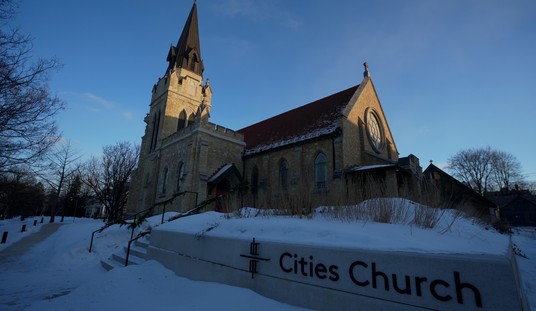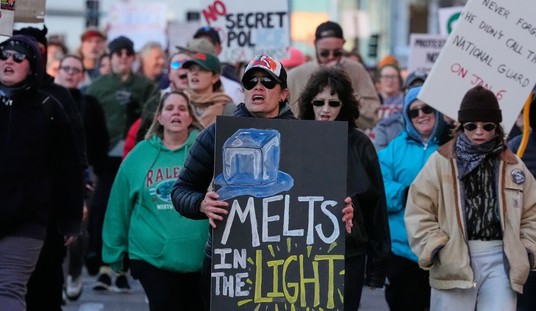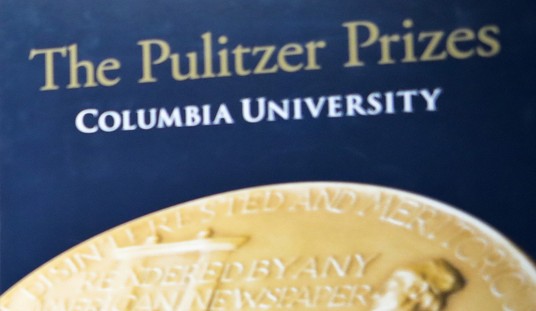When the news came of Air America’s demise yesterday afternoon, it took me back to its very beginnings, in March 2004. Both Air America and I started in radio at about the same time, AA with its network of purchased air time, and me with the Northern Alliance Radio Network show in the Twin Cities on the local Salem affiliate. At the time, we wondered how the business model would work for Air America, and as the Washington Post reports, we had good reason for skepticism:
The company, founded in 2004 and based in New York, strove to provide left-leaning commentary and call-in programs as an alternative to such popular conservative radio talkers as Rush Limbaugh, Sean Hannity and Michael Savage.
It was troubled almost from the start. The company had difficulty lining up affiliates and attracting a sizable audience. It filed for Chapter 11 bankruptcy-court protection just 30 months after its inception and was resold to an investor group in early 2007 for $4.25 million.
Charlie Kireker, one of Air America’s principal owners and its chairman, said in a memo to employees Thursday that the company was done in by “a perfect storm” of plunging ad revenues, intense competition, high debt and poor prospects for new financing. A search for new investors, he said, has been fruitless. The company declined further comment.
The fruitlessness of the search for new investors isn’t surprising. Radio is a tough business, and in a deep recession, ad dollars dry up. Margins are never very robust even in boom times, especially when one has to pay for high-priced talent. Of course, as the boss and Brian Maloney discovered in their ground-breaking blogospheric investigation of AA’s finances, the company got financing from at least a couple of shady deals at its inception. But putting that aside, Air America has been on its last legs for most of its short life.
Not having done any extensive surveys nationwide, I can only relate to you my perspective from the local market. The Twin Cities AA affiliate appeared to do better at attracting an audience than in the nation’s capital, where one might expect liberal talk radio to flourish:
Since last summer, Air America has been heard in the Washington area on WZAA (1050 AM). Its audience has been so small that Arbitron, which compiles radio ratings, was unable to detect any listeners for WZAA during several weeks in December.
Let’s not forget that Obama Radio crashed and burned last February, just a few clicks up the dial from AA’s DC affiliate, too. The difference seems to have been that the Minneapolis affiliate worked harder to produce local programming and build a brand for the AA syndicated content. That doesn’t mean it was wildly successful, but it did meet some kind of demand for liberal talk radio.
Ironically, that’s what NARN does for our station in town, too. And when we first went on the air, we used to spend quite a bit of time poking Air America, even though we were both the new kids on the block. We gradually realized that it was completely “inside baseball” to our listeners; no one really cared about Air America in town, not even when we had great fun at their expense.
Listening to Air America was a tedious chore without much payoff, either, except to note one interesting point about its business model. While our station has dozens of local and regional businesses sponsoring content, Air America’s advertising mostly came from unions, non-profits, and PSAs. From the start, it seemed obvious that the entire network was nothing but a vanity project for people with more money than sense. Liberals wanted a talk-radio network not because of any overarching demand for the content, but merely to say they had one.
As long as the money came from legitimate sources (as noted above, not always the case), there was nothing wrong with that. People have the right to spend their money foolishly. However, anyone who listened carefully to the network and knew about its staffing and airtime issues could not have escaped the conclusion that Air America was a failure looking for a spot on the calendar on which to land. It didn’t have a demand to meet, it was top-heavy, and its on-air talent was mostly second-rate or worse.
Liberal talk radio will survive, but only in boutique markets where either a standing demand generates product to meet it or stations wisely build listener loyalty with effective promotion and content selection. Why? The national media more than fills the national demand for liberal-oriented commentary, in both news, punditry, and entertainment. Conservative radio thrived nationwide because (a) it had competent business leaders, (b) it filled an underserved niche with tens of millions of consumers, and (c) that demand created competition to produce better and better content, allowing first-rate performers such as Rush Limbaugh (who arguably created the market), Sean Hannity, Hugh Hewitt, and others to provide, well, excellence in broadcasting, to borrow Rush’s tagline.
Air America failed because the business model it used doesn’t work and it didn’t meet or create any demand for its product. When the charity stopped getting donations in sufficient quantity to pay its bills, it folded. It’s a fairly simple situation at its core.
Addendum: On Twitter, a few people warned about celebrating Air America’s demise as the collapse threw a lot of people out of work. I agree with that — most of the people who made a living at AA worked behind the scenes and had nothing to do with the content or the business case. However, Allahpundit noted on Twitter last night that those who pledge boycotts against Fox News and launch attacks on advertisers on conservative shows have no grounds to complain. Those boycotts are explicitly intended to take broadcasters off the air and create unemployment as a secondary result. Boycotts are legitimate free-market forms of protest (and are almost entirely unsuccessful on the national scale), but those who backed such boycotts then and wail about unemployed broadcast employees now have little ground on which to stand.








Join the conversation as a VIP Member